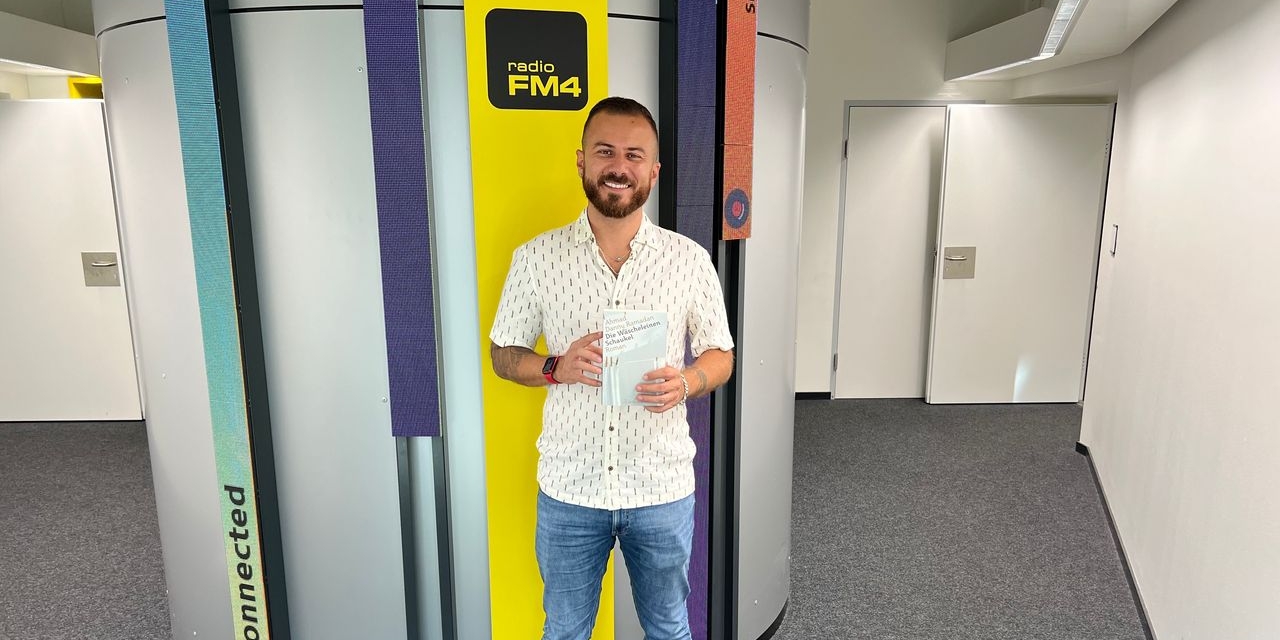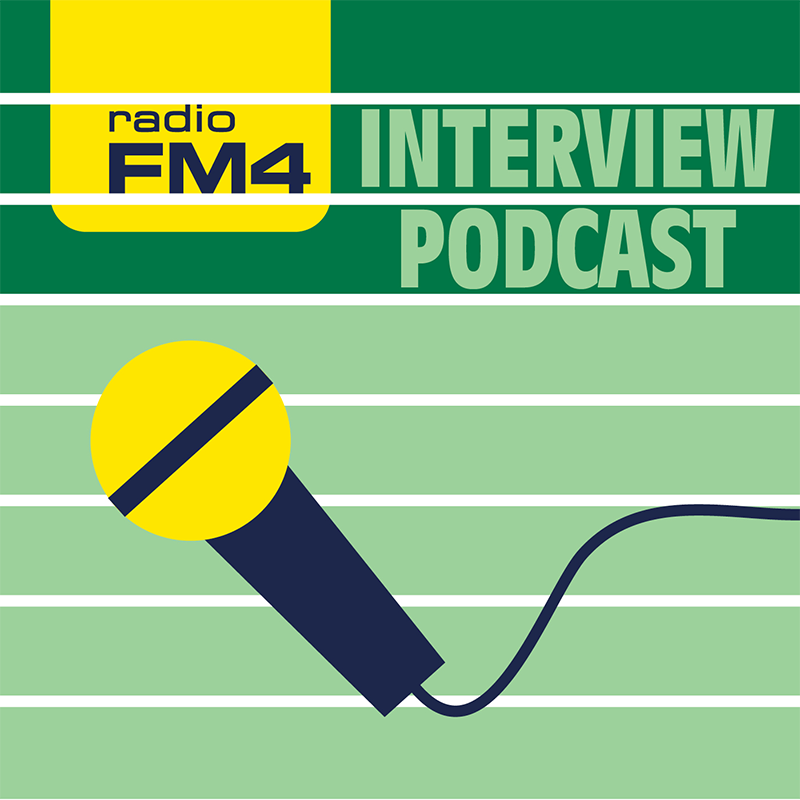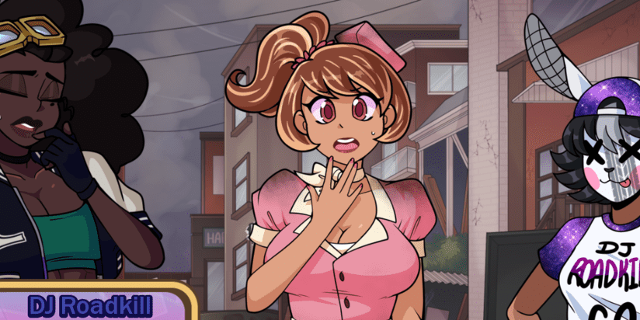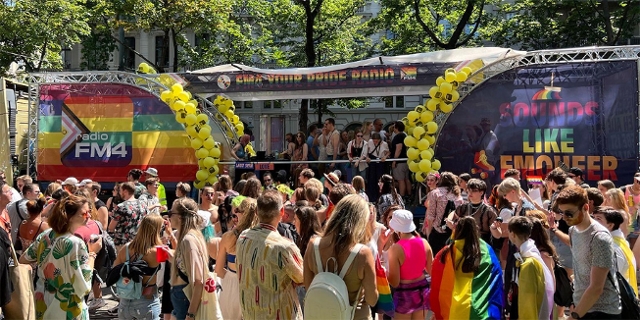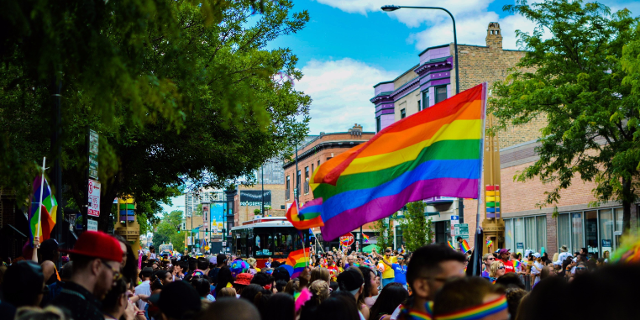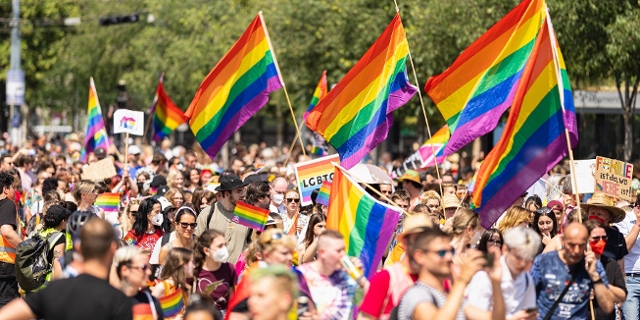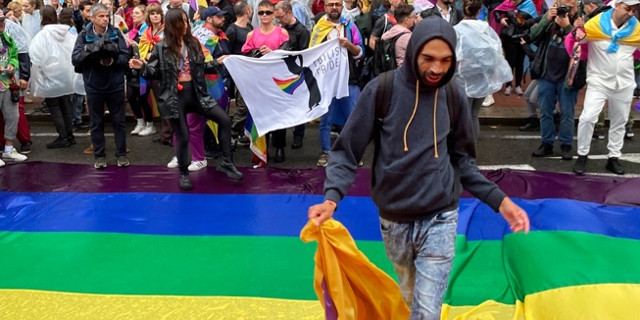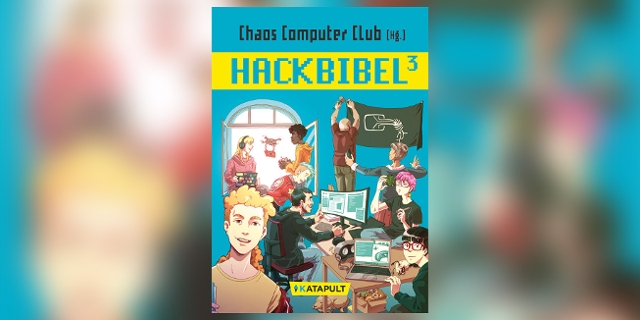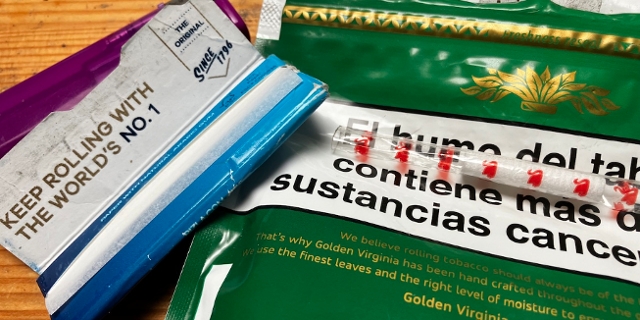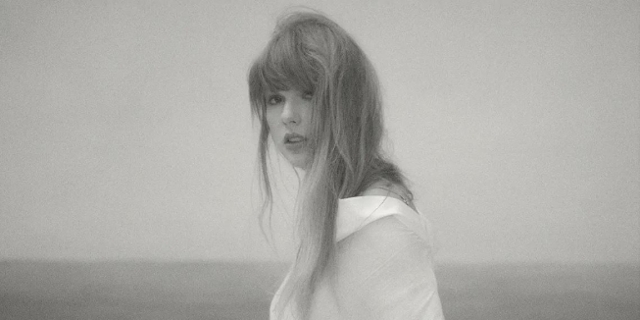Queere Jugend in der Assad-Diktatur
Von David Riegler
„My name is Danny Ramadan, I was born in Damascus, Syria, in 1984, which makes me expired in gay years.“ So stellt sich Danny selbst vor und beweist damit sofort seine humorvolle Seite, die er sich trotz seiner bewegenden Biografie immer behalten hat. Danny Ramadan hat sich schon früh für die LGBTQ+ Community engagiert, indem er in Syrien und später auch im Libanon geheime Treffen für queere Menschen organisiert hat.
Als der Bürgerkrieg ausgebrochen ist, hat Danny Ramadan sich am Aufstand gegen Assad beteiligt, wofür er auch inhaftiert wurde, und später hat er als Journalist aus den Kriegsgebieten für Zeitungen wie den Guardian und die Washington Post berichtet. 2012 floh er in den Libanon und seit 2014 lebt er in Kanada, wo er sich weiterhin für die Community engagiert und als Autor tätig ist. Sein Debütroman „Die Wäscheleinen-Schaukel" hat ihm den Durchbruch als Autor beschert, und noch dieses Jahr soll ein weiterer Roman erscheinen. Auf seiner Lesetour durch Europa haben wir Danny Ramadan zum Interview getroffen.
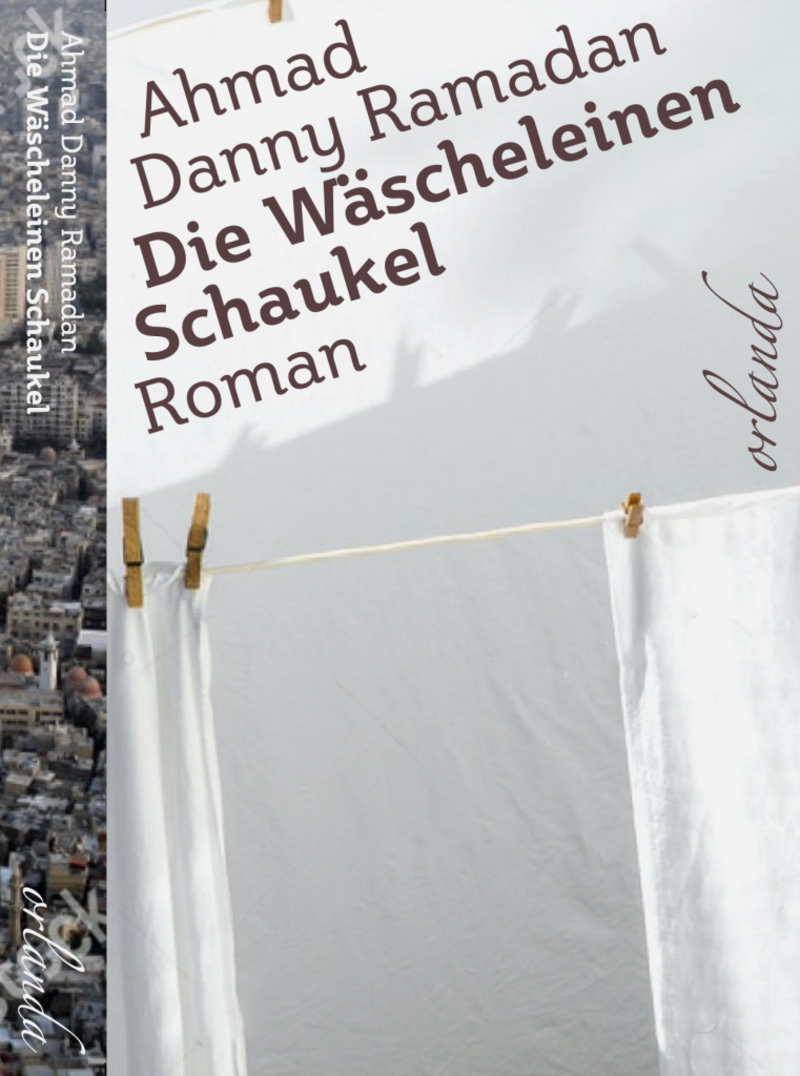
Orlanda Verlag
FM4: How did you come up with the title for your first book „The Clothesline Swing“?
Danny Ramadan: In the middle of the book the main character goes through a very important turning point. He remembers something from his past when he was a much younger child, a moment of joy that he had on a childhood swing that was made of clotheslines. And I think that was the turning moment of the book. The book starts with this guy who is an older gentleman, a gay man who is losing his lover. His lover is passing away and he’s trying to keep him in despair. He’s trying to keep him away from death for the longest time. And I think that that’s the moment where the character starts to learn that life can continue after the death of his lover.
FM4: In „The Clothesline Swing“ the narrator talks directly to me as a reader. Why did you choose this very unusual perspective for the book?
Danny Ramadan: I think when I wrote the book, I wasn’t even sure what I’m doing with it. I wrote the book while I was still a Syrian refugee in Lebanon. I didn’t know if it will ever be published. In a way, while I was writing the book, I was talking to myself, and it was very intimate. It was very meaningful to me, and it helped me deal with a lot of the difficulties that I had growing up and being a Syrian refugee in Beirut. And the other reason, when was the last time that you saw a book where an older gay man is talking to a younger gay generation? We lost a lot of our elders to the HIV crisis. We lost that connection where a younger gay generation would look up for our heritage, our gay culture from our elders. Instead, we are getting it from TV shows on Netflix. I felt that it’s really important to look at it from that perspective to allow us to look into the wisdom of those who came before us.
FM4: The protagonists are also looking back on their childhood and adulthood in Syria. How is it to grow up in Syria as a queer person?
Danny Ramadan: I think I wrote it that way in the book because of the dichotomy of growing up in Syria as a queer person. Dichotomy is the ability to hold two competing and opposing thoughts at the same time. Growing up in Syria as a queer person was extremely difficult because I was surrounded by a society who considered me shameful, a family who rejected me, a law that criminalized me for being a gay person. So that was extremely difficult. Growing up, knowing that you are rejected by every facet of the society that you have around you. But also, this is where I wore shorts for the first time. This is where I kissed a boy for the first time. It’s where I climbed a tree for the first time and then fell off and broke my leg. And it’s those moments that are important to me and they form who I am in a way. What I try to do when I answer questions about growing up in Syria, what I try to do when I write books about growing up queer in Syria is that I want to hold both of those opposing ideas at the same time. It’s the dichotomy of it and it’s beautiful in its own way, I think.
FM4: You are known for your activism for the LGBTQ+ community. That started back in Syria and also in Lebanon where you hosted cultural events for the community. Can you tell us a little bit about that?
Danny Ramadan: I would have to say that the activism in Syria has been quite organic. It’s not like I sat down and had a five-year plan and funding. What I had was a two-bedroom apartment and a lot of friends. So I would call people over. We would play our movie on a projector, on the wall. We would have board game tournaments and card nights. And I think that offered something to the community that didn’t exist otherwise, which is a place just to be yourself. I’m conflicting about calling that activism because it also was very beneficial for me because I needed a community around me where I felt that I am accepted for who I am. When I left Syria to Canada, I was trying to do the same work in Canada, but that didn’t work because of the context. The context is quite different. So where I found my calling in Canada is doing fundraising events where I raised money to an organization in Canada called Rainbow Refugee, which is the organization that brought me to Canada.
FM4: Are you thinking about going back someday?
Danny Ramadan: I will be arrested at the door and so I don’t think that’s happening for me. And even if the regime fell somehow, it’s not about the fall of the head of the regime. It’s about all of the different hands and fingers that are all over the systems of Syria. So even if Bashar al-Assad somehow magically stopped being a dictator, I don’t know if I will be safe to go back to Syria. It’s kind of heartbreaking, honestly, because I’m obsessed with writing about Syria. I’m obsessed with writing about Syrian people. I’m obsessed with writing those beautiful stories. And it’s like I am denied access to it. You know, it’s funny because I look at the map of Damascus and I don’t remember how to get from my home to my old school because the last time I was in Damascus was 10 years ago. So the memories are fading away. And that is just sad.
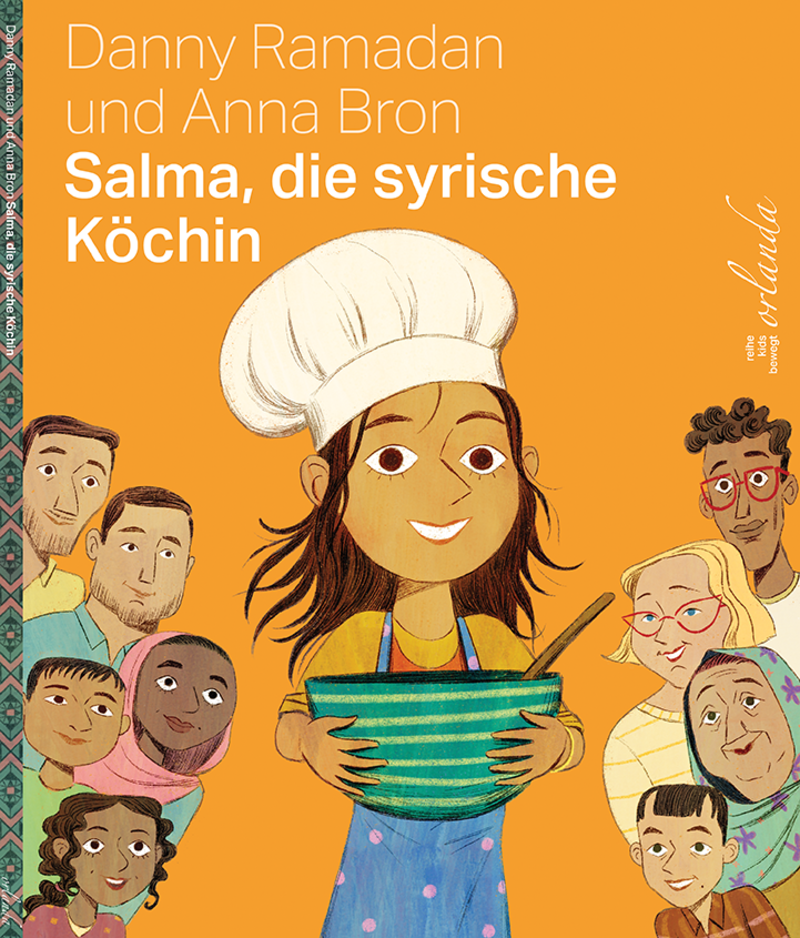
Orlanda Verlag
FM4: You also wrote another book that is connected to Syria. It is an illustrated children’s book called „Salma the Syrian Chef“. How was it to write for a completely different audience, for children?
Danny Ramadan: The beauty of writing for children is that it’s such a tightrope balance because the story has to be very organic for the child. But you also are writing for the parents who are the ones who are going to pick up the book and the ones who are going to bring it home. You’re writing for the teachers. They are the ones who will bring the book into the classroom and talk to the children about it. So I was quite challenged by that because you are trying to write to completely different audiences at the same time. I had an editor at Annick Press, the original publisher in English. She came to me and she’s like, just focus on the child’s agency, which is: the child can actually fix her own problems by herself. And that was instrumental in writing the book. When I stopped trying to talk down at children and started to talk at their level, that’s just what made the book work. It was a lovely experience. I’m actually writing three more Salma books. The next one is called „Salma Builds a Home“.
FM4: Not only that – you are also releasing another novel later this year. It is not out yet, but can you give us an exclusive insight into your next book?
Danny Ramadan: „The Foghorn Echoes“ is coming out in August in Canada and in September in the UK and hopefully in German soon after. The book tells a story about two teenage boys who met in Syria in 2003, and they fell in love. But then something traumatic happens that separates the two of them in the very first chapter. The Heart of the Book picks up ten years later, where one of them is living in Vancouver as a Syrian refugee, and the trauma is affecting him quite negatively. He’s dealing with a lot of drugs and sex and alcohol, trying to bury the trauma as much as possible. The other one is still stuck in Syria and is homeless in Damascus, but ends up opening up to his trauma, trying to face and navigate the trauma instead. The book has a lot of echoes. The two characters, even when they’re not talking to each other, are echoing each other in a way. One of them is going in one direction and the other is going the other.
Publiziert am 06.06.2022







